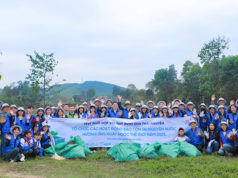The Abdul Latif Jameel World Water and Food Security Lab (J-WAFS) at MIT has announced its third round of seed grant funding to the MIT community. J‑WAFS, launched in 2014, is MIT’s Institute-wide initiative to promote, coordinate, and lead research related to water and food that will have a measurable and international impact as humankind adapts to a rapidly expanding population on a changing planet.
This year, seven new projects will be funded, led by 10 faculty principal investigatorss across seven MIT departments. The winning projects include fertilizer technologies, technologies for water supply, and policy-oriented research addressing the uptake of irrigation technologies in Africa.
An ever-increasing number of faculty from across the Institute are deeply invested in addressing critical global challenges in water and food security, and this is reflected in this year’s batch of successful proposals. The third J-WAFS call for seed research proposals attracted 38 principal investigators, nearly two-thirds of whom had not submitted proposals to J-WAFS before. Competing for funding were established experts in water and food-related research areas as well as professors who are only recently applying their disciplinary expertise to the world’s water and food challenges. Engineering faculty from four departments were funded, including the departments of Biological Engineering, Chemical Engineering, Materials Science and Engineering, and Mechanical Engineering. Additional funded principal investigators are from the Department of Chemistry in the School of Science, the Department of Urban Studies and Planning in the School of Architecture and Planning, and the MIT Sloan School of Management.
The seven newly funded projects bring the total number of seed research projects supported by J-WAFS to 24 since 2015. J-WAFS Director John Lienhard argues that “we must continue to advance innovations and creative ideas for delivering safe and secure food and clean and renewable water supplies. Through the innovative technologies and collaborations we are supporting with these new research projects, J-WAFS is working to secure the future of our communities, the sustainability of our cities, and the prosperity of our economies in the face of rising population, greater urbanization, and changing climate.”
Project highlights appear below, followed by a full listing of 2017 J-WAFS Seed Grant-funded projects.
Enhancing crop production with an eye toward sustainability
Enhancing crop production while supporting environmentally sustainable farming practices in developing countries was a theme of several funded projects this year. Two projects are addressing challenges around nitrogen fertilizer. Nitrogen is required for agricultural productivity, and most nitrogen fertilizer is manufactured using fossil fuels, which has a large carbon footprint. In Africa and other parts of the world, nitrogen fertilizer is not accessible to most farmers due to poor infrastructure for distribution, limiting the crop yields they can achieve. However, in North America and elsewhere, excess fertilizer runoff from farms contributes to water pollution.
Karthish Manthiram, the Warren K. Lewis Career Development Professor in the Department of Chemical Engineering, will develop a solar-powered electrochemical device that can convert nitrogen from air, water, and sunlight into ammonia to be added to soil to promote plant growth. Christopher Voigt, professor of biological engineering, is pursuing an entirely different path, with the objective of engineering cereal grains that can “fix” atmospheric nitrogen the way that legumes do. Once realized, these grains could become self-fertilizing high-yield producers in varied regions across the globe and dramatically reduce the damage to soil health, water supply, and local ecosystems often associated with the use of chemical fertilizer.
Improving methods for culturing microalgae for food and fuel
Another funded project could significantly contribute to our ability to expand a promising future source of protein and oil, and reduce the energy use associated with its production. Mathias Kolle, assistant professor of mechanical engineering, aims to create a new class of multifunctional micro- and nanostructural optical fibers that can more efficiently and effectively transport light and carbon dioxide throughout industrial microalgae cultures.
Microalgae are effective generators of protein-rich biomass that could, if produced on an industrial scale, supplement human nutrition, provide animal feedstock, and serve as biofuel. However, current production methods aren’t economically viable for this scale. Kolle’s microfibers could transform large-scale industrial microalgae production, making microalgae-produced protein and fuel an economically viable, sustainable, and energy efficient option in the future.
Harvesting water from air
Securing clean drinking water in environments that are water-scarce or polluted is a challenge in many regions of the world. Additionally, agriculture and industrial uses deplete — and contaminate — global supply of freshwater, which increases the demand for alternative means of water gathering. Mircea Dinca, associate professor of chemistry, and Evelyn Wang, the Gail E. Kendall Associate Professor in the Department of Mechanical Engineering, are teaming up to develop a new technology that can be used to harvest water in even the most arid regions of the globe. They will create a passive solar device that can extract clean, fresh water from the air at any range of humidity, using a metal-organic framework (MOF), a specialized porous material. J-WAFS seed funding will support the development of MOFs that can be used for providing water to remote areas, with greatly reduced infrastructure costs.
2017 J-WAFS Seed Grant recipients and their projects:
“Affordable Potassium Fertilizer from K Feldspar for Africa.” PI: Antoine Allanore, assistant professor in the Department of Materials Science and Engineering
“Characterizing Extension Policy and Private Irrigation Supply Chain Linkages: Lessons from Senegal.” PIs: Stephen Graves, the Abraham J. Siegel Professor of Management Science in the Sloan School of Management; and Bishwapriya Sanyal, professor in the Department of Urban Studies and Planning
“Distributed Water Harvesting from Air in Water-Stressed and Remote Areas using Metal-Organic Frameworks.” PIs: Mircea Dinca, associate professor in the Department of Chemistry; and Evelyn Wang, the Gail E. Kendall Associate Professor in the Department of Mechanical Engineering
“Electrochemical Nitrogen Fixation for Distributed Fertilizer Production.” PI: Karthish Manthiram, the Warren K. Lewis Career Development Professor in the Department of Chemical Engineering
“Evaluation of Fully Synthetic Nitrogen Fixation Pathways, Designed for Plant Mitochondria and Plastids.” PI: Christopher Voigt, professor in the Department of Biological Engineering
“High-efficiency Chemical-Free Backwash Strategy for Reverse Osmosis Membrane Antifouling.” PIs: Xuanhe Zhao, the Noyce Career Development Professor in the Department of Mechanical Engineering; and John H. Lienhard, V, the Abdul Latif Jameel Professor of Water and Food in the Department of Mechanical Engineering and J-WAFS
“Multifunctional Light-Diffusing Fibers for Simultaneous Light Management and Fluid Transport in Microalgae Bioreactors.” PI: Mathias Kolle, assistant professor in the Department of Mechanical Engineering






